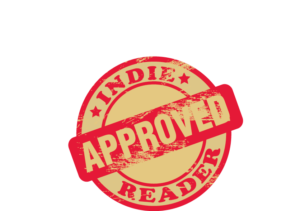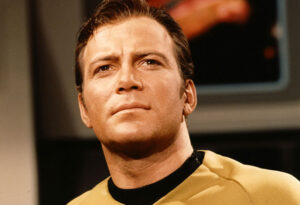
Wine Dark Deep received a 4+ star review, making it an IndieReader Approved title.
Following find an interview with author R. Peter Keith.
What is the name of the book and when was it published?
Wine Dark Deep, October 12, 2020.
What’s the book’s first line?
“Instantly, everything had gone to shit.”
What’s the book about? Give us the “pitch”.
It’s “What if Carl Sagan had done “Star Trek”? A grounded sci-fi action adventure with real science at the heart of some of it’s big challenges. A space swashbuckler in a “The Martian”/”2001: A Space Odyssey” kinda environment.
“Cal Scott and the crew of the spaceship Ulysses must wrest their fuel supply from a band of rebel asteroid miners on the asteroid Ceres – or else their historic mission is lost. “
What inspired you to write the book? A particular person? An event?
I had the honor and fortune to be the creative director for a groundbreaking public computer simulation exhibit developed over five years with NASA. My company became a NASA Space Act Agreement Partner company (the same relationship the Jet Propulsion Lab has with NASA) and I was the point person for all research, development and communication with all the amazing NASA experts I got to interact with.
We spent years developing detailed simulations to communicate the basic principles of spaceflight to a museum audience — allowing them to plan and fly their own missions into Earth orbit, to the Moon, Mars and Ceres.
The simulations were so detailed that we re-created over 20 miles of lunar surface, 12 miles of Mars and 3 miles of Ceres — directly from NASA space probe data. The spacecraft you control were meticulously designed, even to the point of the fuel tank volumes for the landers and their entry, descent and landing profiles being calculated by one of the team that performed the same function for the Mars Curiosity Rover landing.
The world we created was so detailed that I could not help but imagine who would live there, what challenges they might face. The world of Wine Dark Deep was born right there.
What’s the main reason someone should really read this book?
It’s a great time. I don’t care what the point of a book is, what it’s message is, if it includes real-life valuable scientific knowledge — if it’s not fun, if it doesn’t engage, it is never going to get its message across. Read these books to have, first and foremost, a great time. Anything else is bonus.
What’s the most distinctive thing about the main character? Who-real or fictional-would you say the character reminds you of?
The main character draws upon many of my favorite childhood literary and sci-fi heroes. He’s a little bit C.S. Forrester’s Horatio Hornblower, he’s a little bit Captain Kirk (who was also a little bit Hornblower) and he’s (believe it or not) a little bit Frodo Baggins in that he’s unsure of himself, unsure that he will be able to meet the challenges that face him and worried that he will fail the people who are important to him.
If they made your book into a movie, who would you like to see play the main character(s)?
Fun question! Modern actors or total fantasy? If it’s modern actors, I’d have said Chadwick Bozeman before he so tragically passed away. He was wonderful at portraying outer strength but inner doubt. Michael Fassbender I also think would be perfect. But if I could pluck someone out of time, I’d pick 1966 William Shatner – because: Shatner.
When did you first decide to become an author?
I have always wanted to tell stories. I’m a trained artist (I went to the Joe Kubert school as a kid) and I’ve been in love with fantastical storytelling ever since I can remember. I got into the museum exhibit business and began to tell narrative stories within museum exhibitions and custom-created video games.
I wrote ¾ of a novel in college, never finished it. I jotted down the ideas for a bunch of novels over the years but it was working on the simulations with NASA and a 19 hour drive down the coast with my family during which the entire plot of the first WINE DARK DEEP book came alive in my head that really did it. I had to get it out.
Is this the first book you’ve written?
Yes, this is my debut novel.
What do you do for work when you’re not writing?
I am a creative director for a company that provides exhibits and simulations to the location based entertainment world – particularly museums and visitor centers.
How much time do you generally spend on your writing?
As much as I can when I’m not promoting or nose-deep into game design or simulator pneumatics. But when I am full-on writing I try and bang out at least 2000 words per day, usually pounded out from 10pm to 2 am.
What’s the best and the hardest part of being an indie?
Well, so far it is that you just don’t automatically have the group around you with the experience to know what are the best next steps. How to get your work the attention it needs?
What’s a great piece of advice that you can share with fellow indie authors?
I don’t know how well I should be taken as a source — we shall see in the coming months, but the reaction of readers so far and the IndieReader review is a good start!
That said, but the best piece of advice I ever got in my life was from Nolan Bushnell, he’s the guy who founded Atari. He told me that the biggest obstacles you will encounter are other people telling you that “It’s not the right time” or “You don’t have enough money” or “You don’t have the right people (helping) to do it.” He said the secret to entrepreneurship (and being an indie author IS being an entrepreneur) is knowing that it’s never the right time, you never have enough money and you never have the right people. Just do it.
I’d also add – make a plan and follow it. Adjust things along the way, but execute your plan.
Would you go traditional if a publisher came calling? If so, why?
I don’t know how to answer that question. One of the things that appealed to me about indie books is the creative freedom. Not having anyone (or even any market forces) telling you “No.” At this stage in my career I really wanted to try and produce and end produce that was exactly the way I wanted it to be. I’ve done big projects in the past and by necessity compromises are almost always made. Hopefully they are minor, but when time or money or market factors intrude you have no choice but to respond. And then there’s always the pesky client to think about. Lol.
Wine Dark Deep is exactly what I want it to be. But – to answer your question, it would depend on the deal and what they are bringing to the table. If I were to get some guaranteed advertising and promotional spending as a part of a fair deal I might be up for it. I feel that one of the biggest things a major publisher brings to the table is their credentials, which translate to the public perception of your work. “This book has been vetted and edited by top people in the industry,” a potential reader thinks. And so they then assume a certain level of quality and production value. An indie title has to prove all of those things to a potential reader, whereas if you’ve been published by Penguin. . . well that says it all, right. It tells the reader that while they might not like it, it’s a work of quality.
I worked hard to try and bring that level of quality and fit and finish to my novels (I am launching three books in the Wine Dark Deep series simultaneously), and I brought my experience as an art director and creative director (including a great roster of freelance talent that I’ve amassed over the years) to the project to try and do so.
Is there something in particular that motivates you (fame? fortune?)
Well, in these frightening times, I would love to be able to get a little fortune (because heaven’s knows that museums and public entertainment businesses have been hard by these shutdowns) so I will fully and happy admit to that motivation. But as I’d mentioned – it really was a desire to tell a story and to tell it the way I wanted to tell it, with no one holding any editorial or budgetary vetoes over me. It has been incredibly rewarding.
Which writer, living or dead, do you most admire?
I don’t know if I had to pick one I guess I’d have to pick a true titan, a Twain or Shakespeare. Someone foundational. Homer himself maybe.
Apart from that I don’t delve into an author’s personality to know whether I’d admire them or not. I admire their works. There are tons of books I admire greatly.
Which book do you wish you could have written?
Alastair Reynold’s House of Suns. Just an astounding work of imagination.

